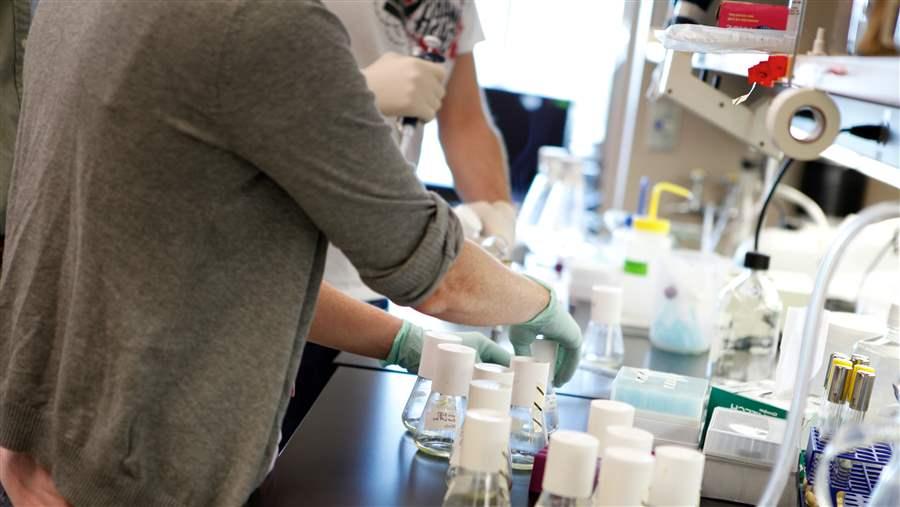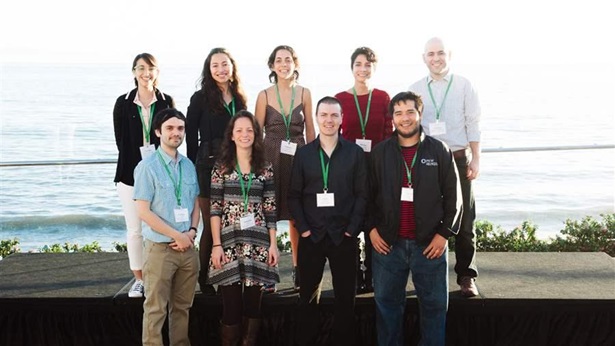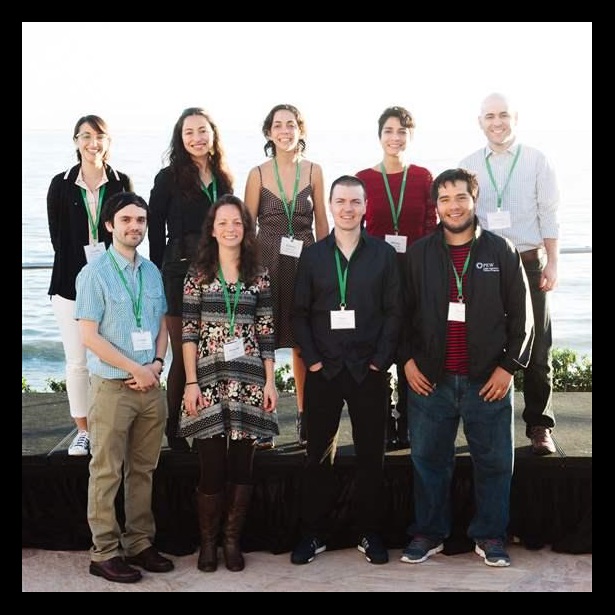Pew Latin American Fellows Receive Boost in Funding
Grants from 2 Argentine foundations will help launch Latin American labs to study schizophrenia, HIV, and more

Laboratory scientists will get an assist from the Bunge and Born Foundation and the Williams Foundation upon their return to Latin America.
© Dave K. Cooper/The Pew Charitable Trusts
Three Pew Latin American fellows have been awarded grants by the Bunge and Born Foundation and the Williams Foundation to help launch their laboratories in Argentina. These grants will augment awards from the Pew Latin American Fellows Program in the Biomedical Sciences for scientists to study in the U.S., with additional funds to purchase equipment to start their own labs when they return to their native countries.
Since 2011, Pew has partnered with the Bunge and Born Foundation to contribute additional financial support to fellows returning to Argentina. This year, the Williams Foundation joined the effort. Combined, Bunge and Born and Williams awarded three grants of $35,000 each:
- Javier G. Magadán, Ph.D. (2007 fellow) is an assistant professor at the Institute of Histology and Embryology of Mendoza at the National University of Cuyo in Argentina. Magadán will be characterizing an HIV-1 protein to study its role in disease virulence. As a fellow, he worked with Juan S. Bonifacino, Ph.D., at the National Institutes of Health, where he investigated HIV and host-cell interactions.
- Verónica C. Piatti, Ph.D. (2010 fellow) studied how neurons in the brain establish and form memories—work that was guided by Jill K. Leutgeb, Ph.D., at the University of California, San Diego, during her fellowship. Piatti now leads a new line of research in the laboratory of neuronal plasticity at the Leloir Institute in Argentina, where she is setting up the first neuronal recordings during animal behavior at her institution.
- Estefanía P. Bello, Ph.D. (2013 fellow) conducted her postdoctoral research at Columbia University, where she studied the effect of the chemical dopamine on schizophrenia with Eric R. Kandel, M.D. She now is a research associate at the Institute of Physiology and Biophysics Bernardo Houssay, where she will continue to dissect the neurological basis of schizophrenia.
In a separate boost of support for Latin American scientists, Williams is also providing an additional year of U.S. research funding to an Argentinian Pew fellow. Pew’s program supports two years of training in the States; the additional Williams funds grant one individual a third year before his or her return to Latin America.
Luisina De Tullio, Ph.D. (2014 fellow) is the first awardee to receive this generous support. De Tullio is a postdoctoral research scientist at Columbia University, working under the guidance of Eric C. Greene, Ph.D. She is studying the molecular system that corrects DNA breaks—research that could enable additional insights into how cells protect us from DNA damage and the formation of cancer. When she completes her U.S. studies, De Tullio hopes to continue her groundbreaking work in Argentina.
Kara Coleman directs The Pew Charitable Trusts’ biomedical programs, including the biomedical scholars, Pew-Stewart Scholars for Cancer Research, and Latin American fellows programs.


America’s Overdose Crisis
Sign up for our five-email course explaining the overdose crisis in America, the state of treatment access, and ways to improve care
Sign upLatest From Our Biomedical Programs


Scientists Bring Innovative Research to Latin America
Pew biomedical fellows discuss the benefits of training in the U.S.









